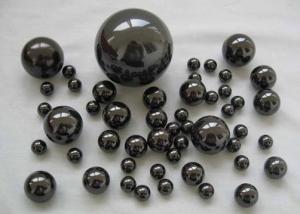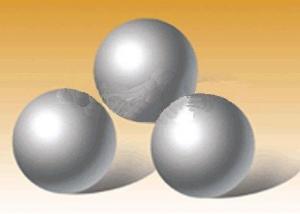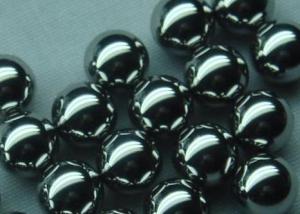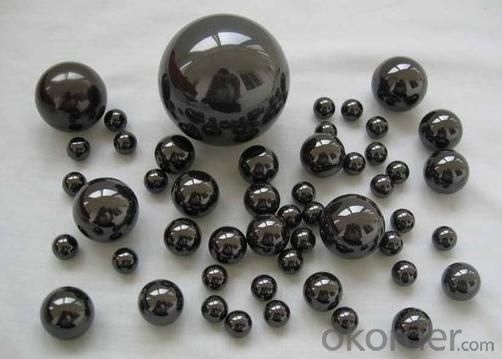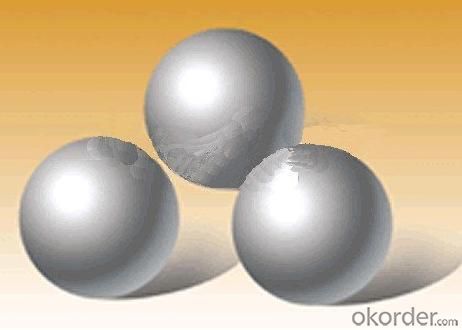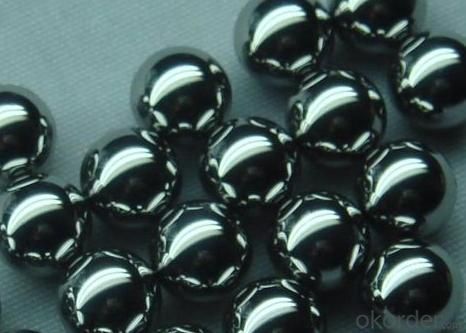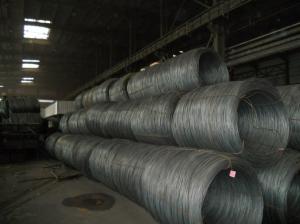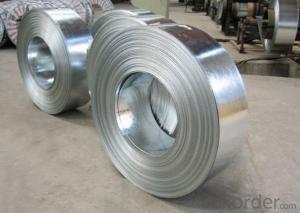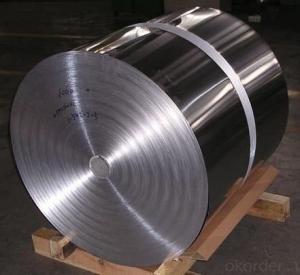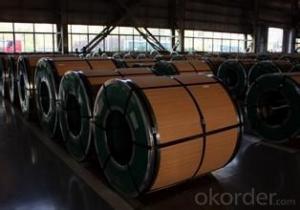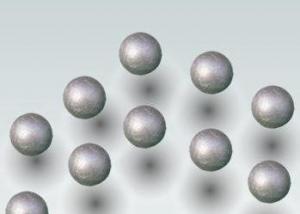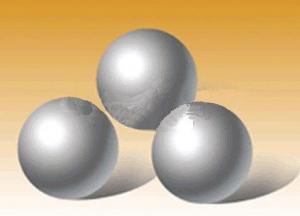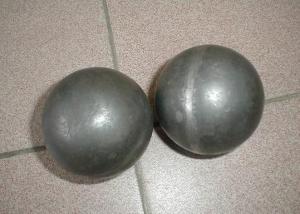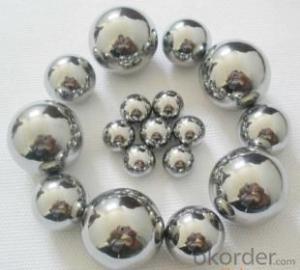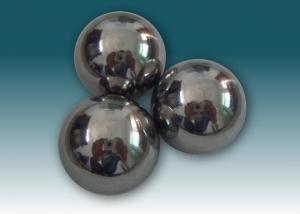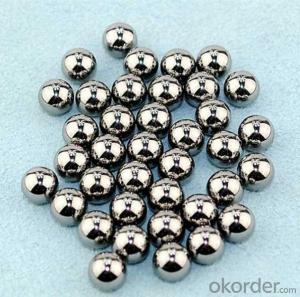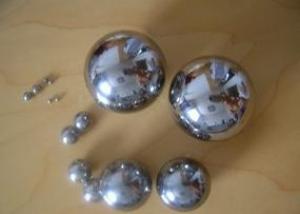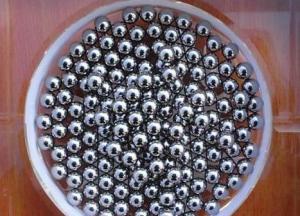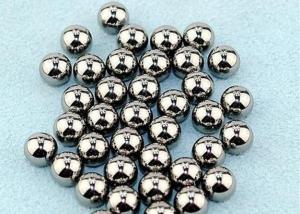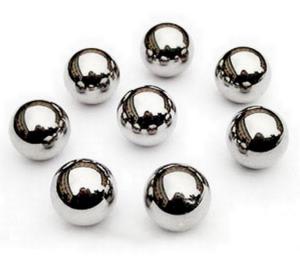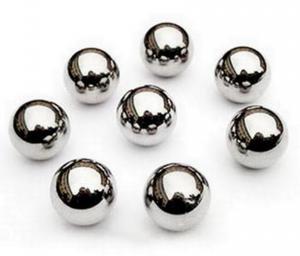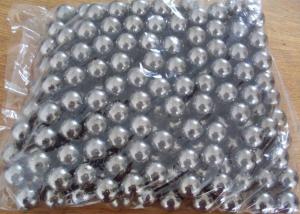Steel Balls
- Loading Port:
- China Main Port
- Payment Terms:
- TT or LC
- Min Order Qty:
- 5 Tons m.t.
- Supply Capability:
- 1000 Tons Per Month m.t./month
OKorder Service Pledge
OKorder Financial Service
You Might Also Like
Stainless Steel Ball
MAIN PRODUCTS:
1. Material: AISI304, 316L, 420C, 430, 440C
2. Steel ball, with material AISI 1008-1086.
3. Chrome steel ball,with material: AISI52100
4. Flying saucer steel ball
5. Precision casting, including auto parts, machine parts, hardware handles, etc.
CHARACTER OF PRODUCTS:
1.The Grade of our products is from G10 to G1000
2.The dimension is from 0.5 mm to 25.4 mm.
3.The products from us are widely used in several industries, such as hardware, sliders, ball bearing lead screw, wheels, toys, bicycles, bearings, trust bearings pulleys, chemical industries, etc.
DETAIL SPECIFICATION:
|
Item |
SS304,316L,420C,440C Stainless steel ball |
|
Category |
Stainless Steel Ball |
|
Material |
AISI 420 430 440 SS304 316L |
|
Size |
0.5mm--25.4mm, 1/4",3/16",5/32",1/8",7/32",5/16",7/8",1" |
|
Grade |
G100-G3000 |
|
Hardness ( HRC) |
HRC58-65 |
|
Application |
Bicycle, bearing, pulley, slide, handcraft, shelf, luggage, hardware, grinding media |
|
Standard |
GB/T-308-2002, GB/T1148-93 |
|
Matched Standard |
DIN, JIS, ASME |
|
Certification |
ISO |
|
Packing |
Oily packing in pouch packing,plastic/tin box packing 1, 25kg/carton with steel pallet packing 2,25kg/carton without steel pallet packing 3,10kg/box then in wooden case packing 4,250kg/ steel drum packing or according to customers' requirement |
|
Place of original |
Shandong province, China |
|
Delivery |
Within 30 days or confirmed while placing order |
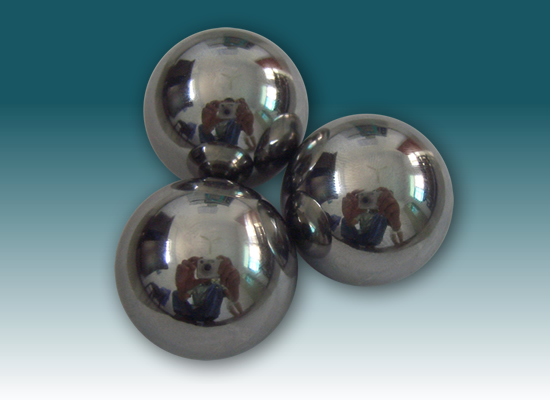
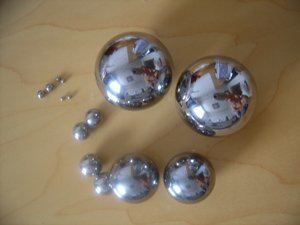
- Q: What is the corrosion resistance of stainless steel balls?
- Stainless steel balls have excellent corrosion resistance due to the presence of chromium in their composition. The chromium forms a protective oxide layer on the surface of the balls, preventing further corrosion and ensuring long-term durability in various environments.
- Q: Can stainless steel balls be used in abrasive environments?
- Yes, stainless steel balls can be used in abrasive environments due to their corrosion resistance and high durability.
- Q: What is the coefficient of friction for stainless steel balls?
- The coefficient of friction for stainless steel balls can fluctuate due to multiple factors, including the type of stainless steel, surface roughness, lubrication, and the materials they come into contact with. Generally speaking, stainless steel possesses a comparatively lower coefficient of friction when compared to other materials, which makes it appropriate for applications that require reduced friction. Nevertheless, it is crucial to acknowledge that the precise coefficient of friction for stainless steel balls can differ based on the specific circumstances and conditions of testing. To obtain an accurate coefficient of friction for stainless steel balls in a particular application, it is recommended to conduct specific tests or refer to relevant literature or specifications provided by the manufacturer.
- Q: Are stainless steel balls resistant to wear or abrasion?
- Yes, stainless steel balls are highly resistant to wear and abrasion due to their durable and corrosion-resistant nature.
- Q: Are stainless steel balls used in any aerospace propulsion systems?
- Yes, stainless steel balls are used in certain aerospace propulsion systems. They are typically utilized in ball bearings, which are crucial components in various engine systems, including turbofan engines and gas turbine engines. These ball bearings allow for smooth and efficient rotation of shafts and other moving parts, reducing friction and enabling optimal performance of the propulsion system. Stainless steel is often chosen for these applications due to its excellent corrosion resistance, high strength, and durability, ensuring reliable operation even under extreme conditions.
- Q: Are stainless steel balls suitable for cryogenic applications?
- Stainless steel balls prove to be suitable for cryogenic applications. Renowned for its exceptional mechanical properties, corrosion resistance, and strength in low temperatures, stainless steel emerges as a perfect material for deployment in cryogenic environments, where temperatures can plummet to unprecedented levels. Even under cryogenic conditions, stainless steel balls retain their structural integrity and performance, establishing themselves as a dependable option for a wide range of applications including cryogenic storage, transportation, and research. Moreover, the non-magnetic nature of stainless steel proves particularly advantageous in cryogenic systems necessitating non-magnetic components. All in all, owing to their durability and resistance to low temperatures, stainless steel balls are aptly tailored for cryogenic applications.
- Q: What is the standard size range for stainless steel balls?
- The standard size range for stainless steel balls typically varies from 1mm to 50mm in diameter.
- Q: Can stainless steel balls be used in electrical conductivity applications?
- Yes, stainless steel balls can be used in electrical conductivity applications. Stainless steel is known for its high electrical conductivity and corrosion resistance, making it suitable for various electrical applications. It is commonly used in electrical connectors, switches, and other components where good electrical conductivity is required. Additionally, stainless steel balls are often used in bearings and other mechanical assemblies where electrical conductivity is necessary to prevent static buildup or to facilitate electrical grounding.
- Q: Are stainless steel balls used in robotic applications?
- Yes, stainless steel balls are commonly used in robotic applications due to their durability, corrosion resistance, and smooth surface finish, making them ideal for precision movements, accurate positioning, and load-bearing capabilities.
- Q: Are stainless steel balls prone to rusting?
- No, stainless steel balls are not prone to rusting. Stainless steel is a corrosion-resistant material that contains a high amount of chromium, which forms a protective oxide layer on its surface. This oxide layer acts as a barrier, preventing oxygen and moisture from reaching the metal and causing rust. However, it is important to note that the protective oxide layer can be compromised if the stainless steel ball is exposed to harsh environmental conditions or if it comes into contact with certain corrosive substances. In such cases, the stainless steel ball may be susceptible to rusting. Regular maintenance and proper care can help prevent this from happening.
Send your message to us
Steel Balls
- Loading Port:
- China Main Port
- Payment Terms:
- TT or LC
- Min Order Qty:
- 5 Tons m.t.
- Supply Capability:
- 1000 Tons Per Month m.t./month
OKorder Service Pledge
OKorder Financial Service
Similar products
Hot products
Hot Searches
Related keywords
